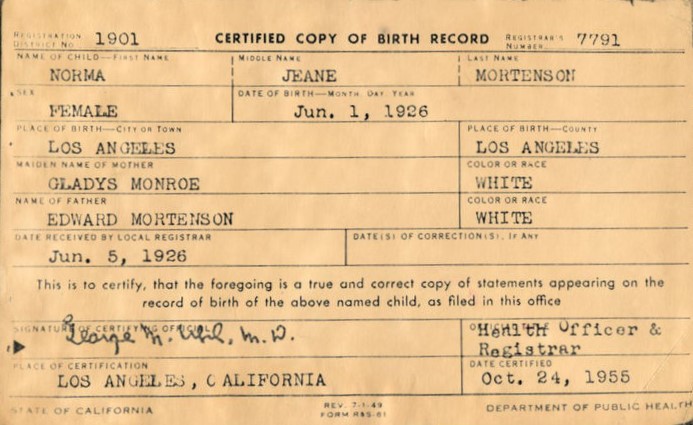
Having just celebrated America’s birth on July 4, Americans are reminded that it’s time to get re-dedicate ourselves to documenting our immigrant ancestors and their families’ contributions to America.With disappearing resources such as access to most FamilySearch microfilms at libraries after September 1, researchers may turn increasingly to critical state archives and other essential online and offline resources. (At least the good news about the access to microfilms is that increasing digitization is rendering some microfilm distribution less useful. Still, a microfilm record was a resource many researchers had relied upon for specific, detailed information that went beyond indexes.) As we yearn for more comprehensive information on ancestors, let’s use the National Archives and Records Administration’s helpful state archives contact lists and resources to pinpoint likely archives for our investigations here. Archives provide information, documents, artifacts, and often hold meetings/present lectures related to state history. This article will focus on archives in Colorado, Michigan, and New Mexico.
Colorado
The Colorado State Archives is located in mile-high historic Denver, and also has an online presence that allows researchers to mine data resources. (Since the mining industry was historically active in Colorado, that’s a help! There are historic mine report files from 1900 onward.) To assist family history researchers, the archives has a presentation on family history information available here: Genealogy Resources. Like most archives, Colorado’s has information related both to the state and to the territory that preceded it, and that’s a plus for those seeking information on territorial-era ancestors. For example, the archives houses “territorial incorporations” records from 1861-1876 as Colorado was expanding in metal mining, transportation (railroading), and water/irrigation industries. Were your ancestors’ records involved?On the Genealogy page, you’ll note that Colorado has records from 1868 on admissions of attorneys to practice law in the state. Also, did you have any wayward ancestors in Colorado who were ever in trouble with the law? The penitentiary records at the archives may assist you in learning more. School records for some years and districtsare also available. Did you have an ancestor in the Civilian Conservation Corps (CCC) in Colorado? The archives has detailed information that may be useful. Historic (not current) divorce cases for 9 counties are searchable using the Archives Search database.
Michigan
Were your ancestors Irish immigrants to Grand Rapids, or did Michigan ancestors serve in the Civil War? Did your forebears help build Henry Ford’s auto industry or know former President Gerald Ford? Seeking Michigan is a robust resource that features “Archives of Michigan research guides and indexes, a blog, and educator resources – all from the Michigan Historical Center and the Archives of Michigan staff.” The death records for 1897-1920 are most often used by researchers, according to the web site.The Michigan archives is headquartered in Lansing and has more than 80 million (!)state/local government documents plus private papers. There are also hundreds of thousands of photographs, maps, and films and audio recordings. The archives houses naturalization papers/microfilms, historic land records (township and range information), military records from the Civil War through World War I, and oral histories from Michiganders.The Michigan archives has a Vimeo channel with overviews referenced on its Seeking Michigan pages. Just for historic and archival fun, you can also learn about how to become a “Michiganologist” here: https://www.michiganology.com/
New Mexico
If you have Native American or immigrant ancestors who lived out west, New Mexico archives research may be highly pertinent.The State Records Center and Archives is located in historic Santa Fe. The online catalog is called “Heritage.” That stands for “History, Information and Research in the Technology Age.” Interested in outlaws such as Billy the Kid? Want to investigate your Native American heritage in New Mexico? Start with Native American Manuscript and Photograph Resources at the archives. Spanish and Mexican land grant information reflecting New Mexico’s history is detailed here: Land Grants. You can also find contextual information about Spanish Crown governors beginning in 1598, and Mexican governors from 1822-1846, when U.S. military occupation began. U.S. territorial governors began in New Mexico beginning in 1851.In 1912, New Mexico became a state. For helpful early sacramental records, microfilms are provided at the archives (such as for Santa Fe and Gallup). Possibly helpful to you will be miscellaneous wills and diaries located at the archives. This web site also involves historical information about New Mexico history: http://www.newmexicohistory.org/In case you need to contact individual courthouses for records in the state, there’s a link here: COURTHOUSES.
Tips: Preparation for Archives Research Trips
By remembering that archives are not organized in the same way as are libraries, researchers can greatly enhance archives trips by preparation that makes a trip both more enjoyable and more productive. Though some items are available to be pulled from shelves by researchers, many must be retrieved by archivists instead.Look carefully at the rules/hours for each archives, noting such procedures as that at the Colorado State Archives, “No records are pulled after 3:30 p.m.” The Denver archives web site also mentions “no record retrievals on Fridays” as of January 6, 2017. At most archives, there are rules about what researchers may bring in. “Researchers will be asked to store jackets, bags, purses, pens, etc. in lockers before beginning their research.” Many researchers like to scan documents or take photos. What are the rules? In Colorado, “photos of records permitted (no flash) for $15/day.” After checking the rules of each archives, family historians are encouraged to contact archives ahead of time about finding specific documents, etc., so that archivists can make preparations to prepare needed items. For example, here’s how to e-mail an archivist in Michigan: archives@michigan.gov. For New Mexico, here’s contact information: Archives@state.nm.us.Click here to receive help from an expert with your Colorado genealogy research, Michigan genealogy research or New Mexico genealogy research.




